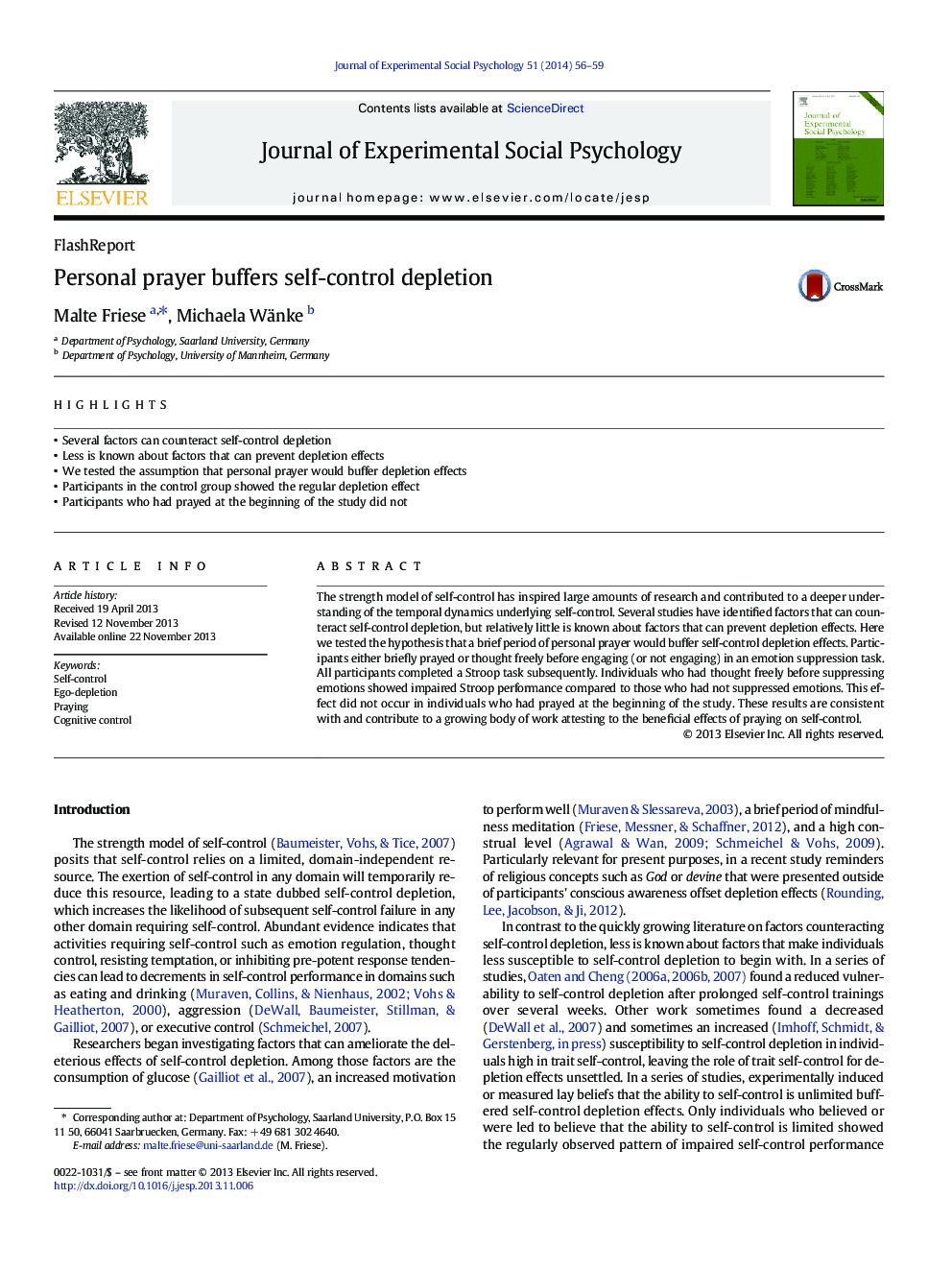| Article ID | Journal | Published Year | Pages | File Type |
|---|---|---|---|---|
| 947780 | Journal of Experimental Social Psychology | 2014 | 4 Pages |
•Several factors can counteract self-control depletion•Less is known about factors that can prevent depletion effects•We tested the assumption that personal prayer would buffer depletion effects•Participants in the control group showed the regular depletion effect•Participants who had prayed at the beginning of the study did not
The strength model of self-control has inspired large amounts of research and contributed to a deeper understanding of the temporal dynamics underlying self-control. Several studies have identified factors that can counteract self-control depletion, but relatively little is known about factors that can prevent depletion effects. Here we tested the hypothesis that a brief period of personal prayer would buffer self-control depletion effects. Participants either briefly prayed or thought freely before engaging (or not engaging) in an emotion suppression task. All participants completed a Stroop task subsequently. Individuals who had thought freely before suppressing emotions showed impaired Stroop performance compared to those who had not suppressed emotions. This effect did not occur in individuals who had prayed at the beginning of the study. These results are consistent with and contribute to a growing body of work attesting to the beneficial effects of praying on self-control.
